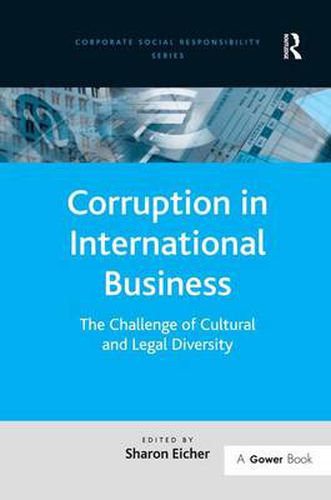Readings Newsletter
Become a Readings Member to make your shopping experience even easier.
Sign in or sign up for free!
You’re not far away from qualifying for FREE standard shipping within Australia
You’ve qualified for FREE standard shipping within Australia
The cart is loading…






It is common practice to assume that business practices are universally similar. Business and social attitudes to corruption, however, vary according to the wide variety of cultural norms across the countries of the world. International business involves complex, ethically challenging, and sometimes threatening, dilemmas that can involve political and personal agendas. Corruption in International Business presents a broad range of perspectives on how corruption can be defined; the responsibilities of those working for publicly traded companies to their shareholders; and the positive influences that corporations can have upon combating international corruption. The authors differentiate between public and private sector corruption and explore the implications of both, as well as methods for qualifying and quantifying corruption and the challenges facing policy makers, legal systems, corporations, and NGOs, as they seek to mitigate the effects of corruption and enable cultural and social change.
$9.00 standard shipping within Australia
FREE standard shipping within Australia for orders over $100.00
Express & International shipping calculated at checkout
It is common practice to assume that business practices are universally similar. Business and social attitudes to corruption, however, vary according to the wide variety of cultural norms across the countries of the world. International business involves complex, ethically challenging, and sometimes threatening, dilemmas that can involve political and personal agendas. Corruption in International Business presents a broad range of perspectives on how corruption can be defined; the responsibilities of those working for publicly traded companies to their shareholders; and the positive influences that corporations can have upon combating international corruption. The authors differentiate between public and private sector corruption and explore the implications of both, as well as methods for qualifying and quantifying corruption and the challenges facing policy makers, legal systems, corporations, and NGOs, as they seek to mitigate the effects of corruption and enable cultural and social change.